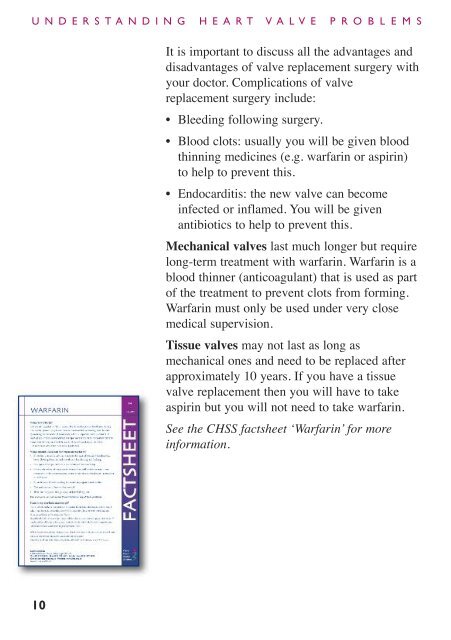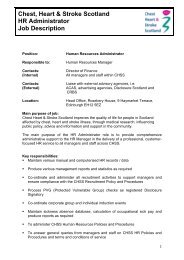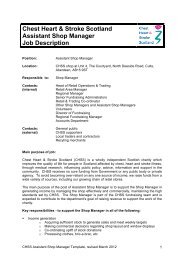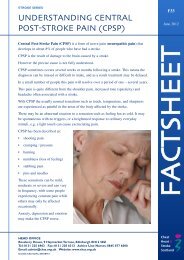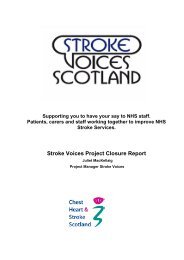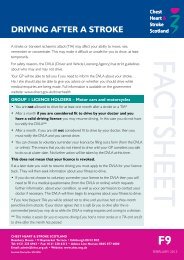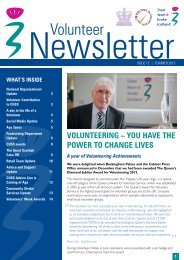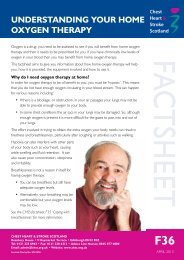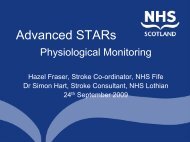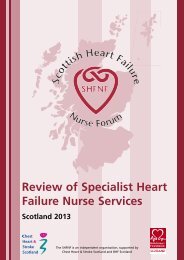CHSS H8 Heart Valves - Chest Heart & Stroke Scotland
CHSS H8 Heart Valves - Chest Heart & Stroke Scotland
CHSS H8 Heart Valves - Chest Heart & Stroke Scotland
You also want an ePaper? Increase the reach of your titles
YUMPU automatically turns print PDFs into web optimized ePapers that Google loves.
U N D E R S T A N D I N G H E A R T V A L V E P R O B L E M S<br />
It is important to discuss all the advantages and<br />
disadvantages of valve replacement surgery with<br />
your doctor. Complications of valve<br />
replacement surgery include:<br />
• Bleeding following surgery.<br />
• Blood clots: usually you will be given blood<br />
thinning medicines (e.g. warfarin or aspirin)<br />
to help to prevent this.<br />
• Endocarditis: the new valve can become<br />
infected or inflamed. You will be given<br />
antibiotics to help to prevent this.<br />
Mechanical valves last much longer but require<br />
long-term treatment with warfarin. Warfarin is a<br />
blood thinner (anticoagulant) that is used as part<br />
of the treatment to prevent clots from forming.<br />
Warfarin must only be used under very close<br />
medical supervision.<br />
Tissue valves may not last as long as<br />
mechanical ones and need to be replaced after<br />
approximately 10 years. If you have a tissue<br />
valve replacement then you will have to take<br />
aspirin but you will not need to take warfarin.<br />
See the <strong>CHSS</strong> factsheet ‘Warfarin’ for more<br />
information.<br />
10


